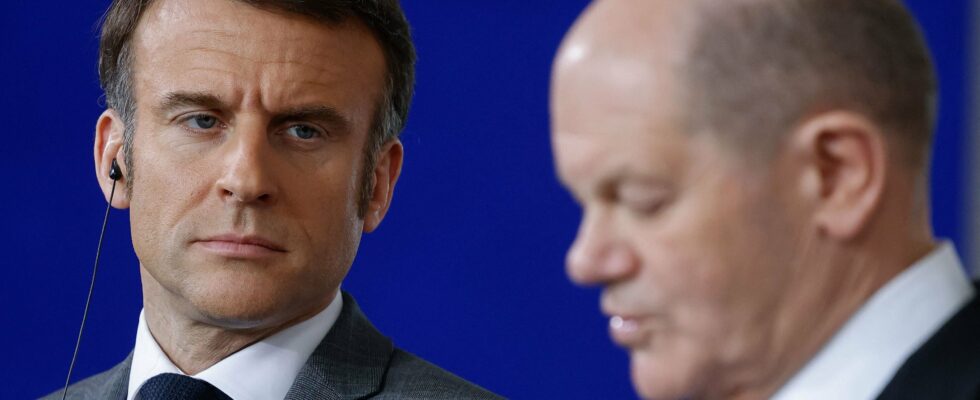Olaf Scholz is not the type to ignite crowds. Your monolithic, marmoreal face, it’s even rather… boring. This March 10, 2023, however, in front of an audience of journalists, the German Chancellor is cheerful. Soon, he announces, the country will experience a new “Wirtschaftswunder” (economic miracle). As during the golden decades (1950-1960). A year later, Germany was in recession and a hail of criticism fell on Scholz. No miracle, therefore, but the worst economic record since the Schröder years. Inflation, energy and housing crisis, demographics at half mast… The indicators are flashing red, even if Berlin, with little debt, maintains a financial margin of maneuver that many envy.
We still need to be able to act. “The three parties in power [NDLR : sociaux-démocrates, verts et libéraux] don’t agree on anything, criticizes a keen observer in Brussels. Everything is blocked and will remain so until the federal elections in 2025.” A boulevard for the far right (AfD), which could soon become the second party in the country. Is Germany sick? It is unfortunately our diagnosis and this is very bad news because faced with a bellicose Russia and at a time of a possible return of Trump, Europe, on the contrary, needs a strong Germany.
He had promised an electric shock. No one has forgotten his determination during his speech on the “change of times” in February 2022, three days after the Russian invasion: “We will not weaken until peace is assured in Europe.” Two years later, the tone is less martial. Certainly, Germany has kept its commitments to Ukraine, even becoming its second largest arms supplier behind the United States.
The fact remains: Scholz shows a timid face towards Russia. His “green” coalition partner, Annalena Baerbock, continues to criticize his procrastination – such as his reluctance to deliver long-range Taurus missiles to kyiv. “The SPD has a direct political interest in presenting itself as the party of peace. Olaf Scholz is part of a certain social-democratic tradition, like Gerhard Schröder, who refused to commit Germany in Iraq in 2003”, analyzes Eric-André Martin, specialist in Germany at Ifri, for whom this “reluctance” can also be explained by electoral reasons in a pacifist country: “The AfD, which openly criticizes any direct or indirect involvement in the war, has never been so well,” he continues.
And too bad if this prudential posture annoys the Elysée. Scholz doesn’t care, as evidenced by his visit to Beijing last April. Ignoring the criticisms of his European partners, the chancellor went to defend his economic interests, accompanied by around ten big bosses. A very “Merkelian” approach. Except that the geopolitical situation has changed and the competition with Beijing has toughened. Does wanting to strengthen industrial cooperation with a country which increasingly competes with Berlin on its strong points (machine tools, automobiles) and no longer hides its massive support for Russia still make sense?
